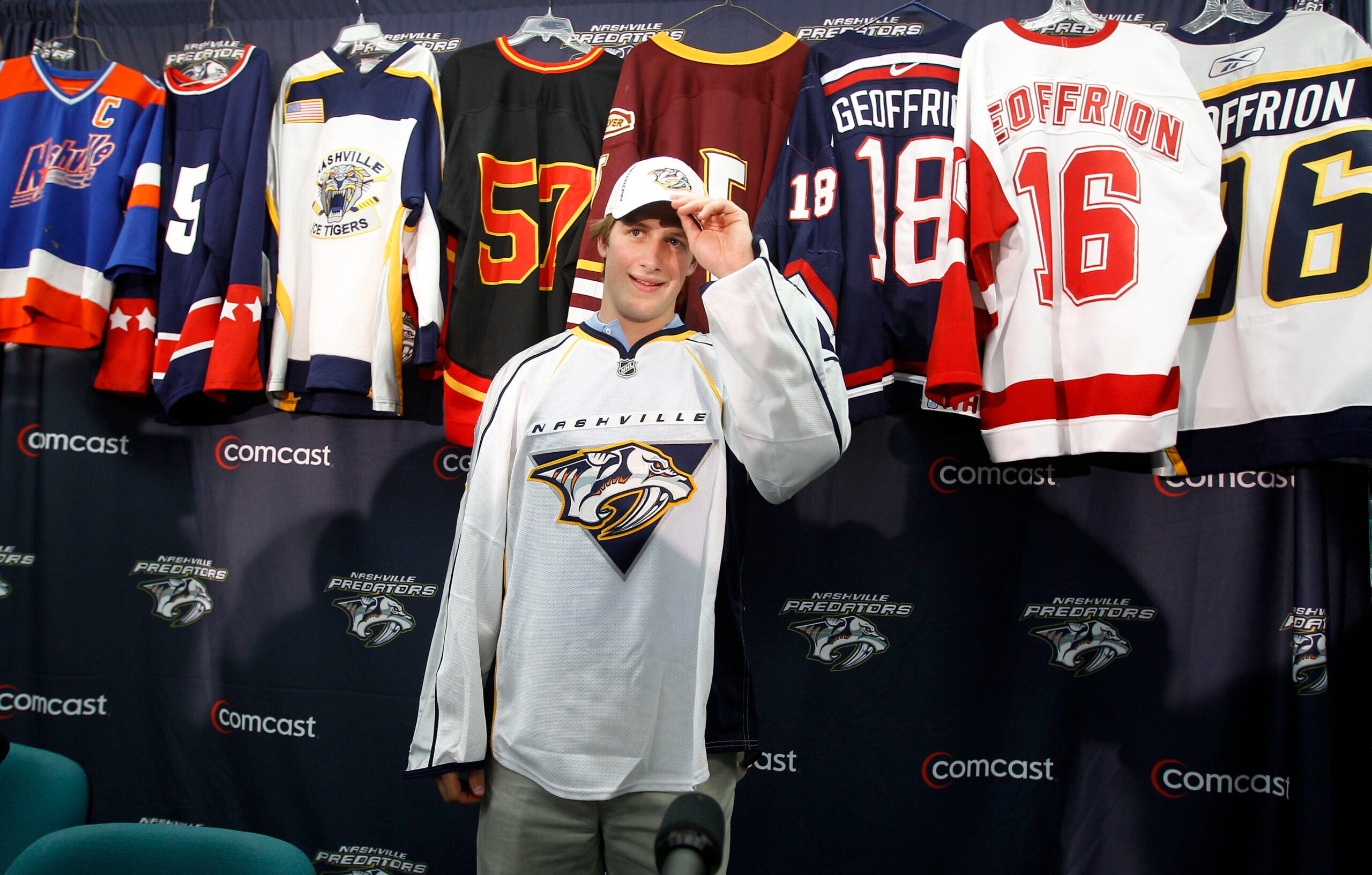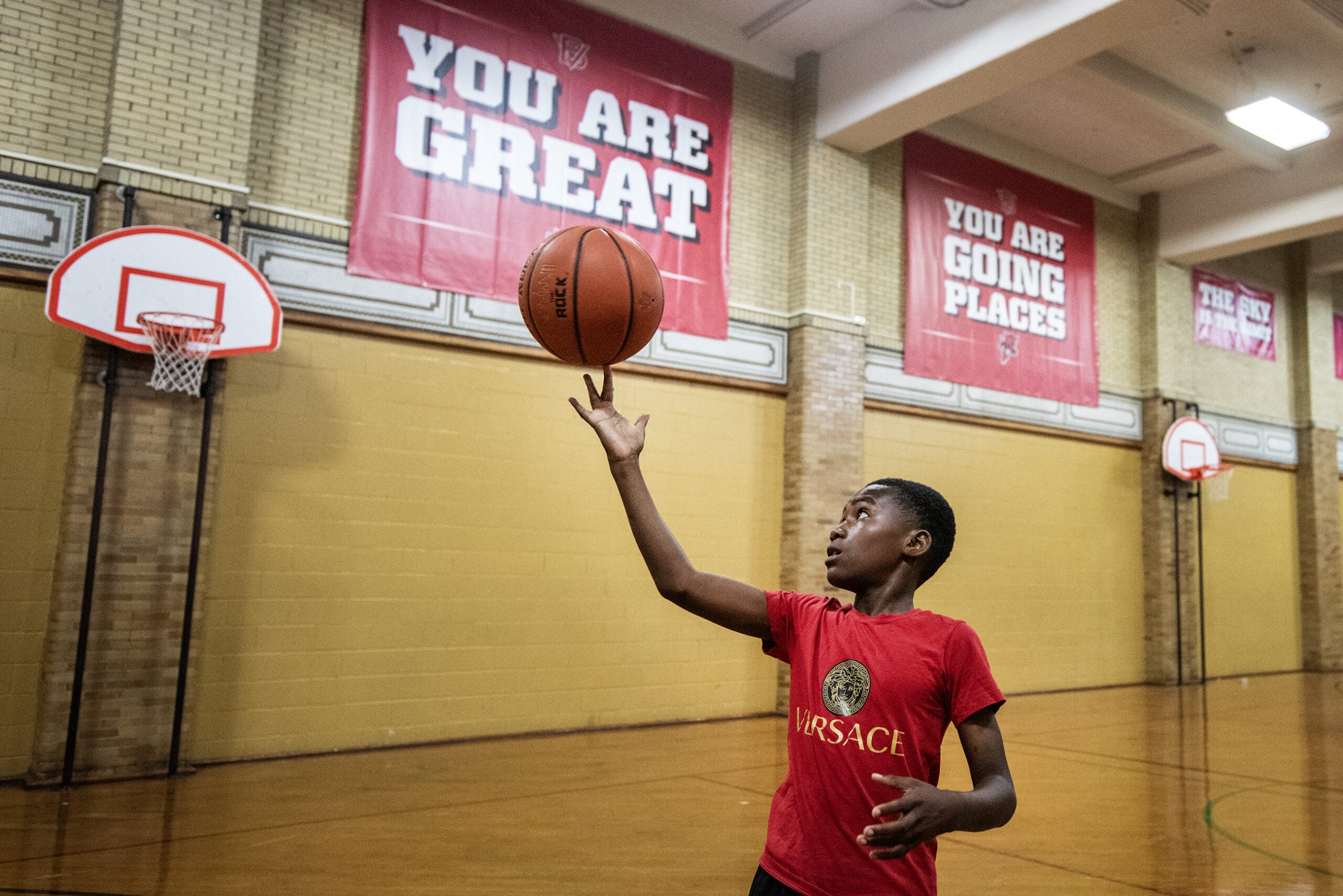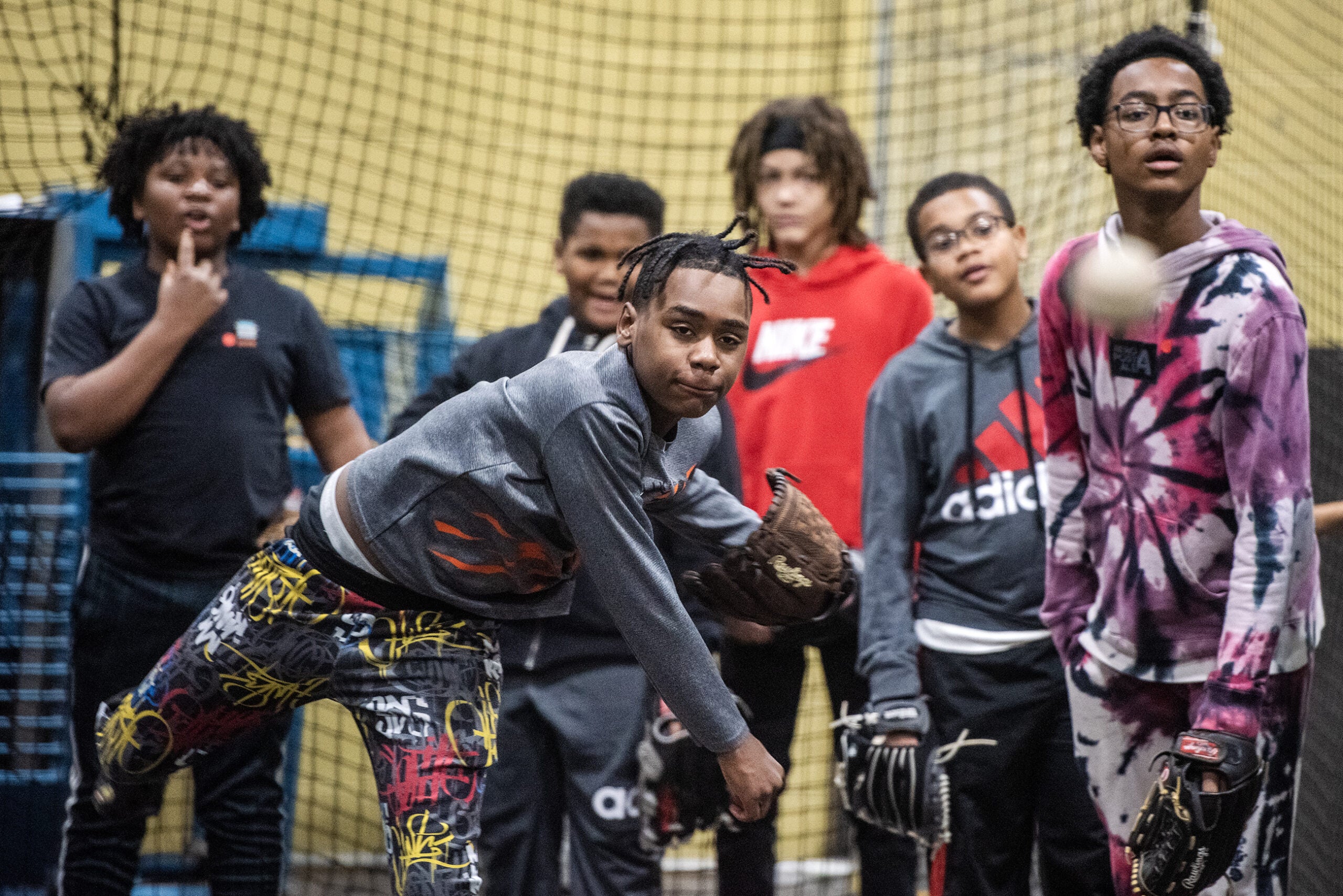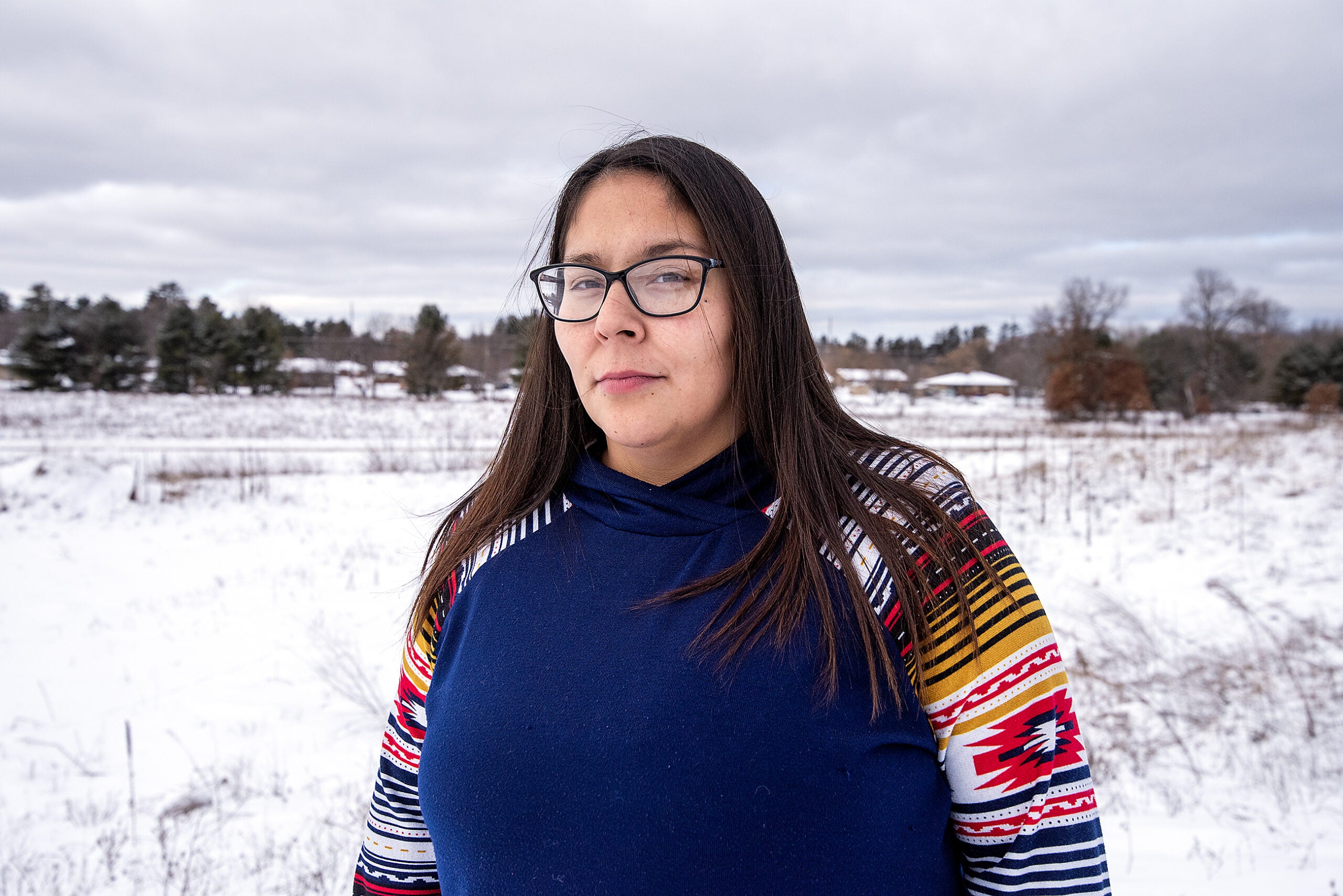Job loss in the manufacturing sector was a huge issue on the campaign trail last year, with free trade agreements getting much of the blame. We’re joined by an economic reporter who argues that technology and automation are an even bigger part of the story. We also talk with a UW women’s hockey player who is ranked among the best in the nation and is one of the few African-Americans in the sport. She shares her experiences and thoughts on being a role model. Plus, President Trump has alleged the the 2016 presidential election was rife with voter fraud and has called for an investigation. We learn more about the potential investigation and what it could mean for voters.
Featured in this Show
-
Automation Driving Job Losses In Manufacturing And Other Sectors
Manufacturing and other job losses were a big issue in the presidential campaign, with a lot of the blame going to free trade and outsourcing–but technology and automation are an even bigger part of the story, according to a reporter covering jobs and the economy.
-
Biggest Job Killer In Manufacturing Industry? Automation
The loss of manufacturing jobs was a key issue in the presidential campaign, with a lot of the blame going to free trade and outsourcing, but technology and automation are an even bigger part of the story, says a reporter covering jobs and the economy.
Claire Cain Miller has written a series of pieces about the impact of automation on manufacturing and other jobs in the United States, and she found technology is having a much greater impact than outsourcing. As she put it in one of her headlines: “The long-term jobs killer is not China. It’s automation.”
“Over the long term it’s not even close,” said Miller. “Economists say automation and technology have had a much much bigger impact than anything to do with globalization.”
A Ball State University study that tried to pinpoint the balance of blame found automation accounted for about 87 percent of manufacturing job loss, and about 13 percent was the result of free-trade deals and globalization.
According to the Federal Reserve, U.S. manufacturing output is near a record high, while manufacturing jobs have been in a major decline. So when you hear someone say, ‘America doesn’t make anything anymore,’ Miller said that’s just not true. America’s making things, it’s just getting a hand, or a robotic arm.
“The steel industry is one example,” Miller said. “It’s lost 75 percent of its workforce since 1962. Production and shipments have not changed at all. And the reason is that robots are doing these jobs now.”
As far as the manufacturing sector is concerned, the biggest job losses concerned those who were performing what might be called “routine” duties, said Miller.
“Those are things that are the easiest to program a machine to do,” she said. “Things like loading items onto a conveyer belt or stocking items into regular-sized boxes. These are the kinds of things that are very predictable work.”
But automation and technology affects plenty of other jobs, too. Secretaries who once filed actual paperwork into cabinets are now largely replaced by Microsoft Office. ATMs have replaced actual bank tellers. There are automated checkout lines at the grocery store.
“There’s even robots who are administering anesthesia, so an anesthesiologist is a very highly educated, very highly trained doctor obviously, and robots are even learning to do those jobs,” Miller said.
This isn’t a trend that is going to change anytime soon. The next big change could come with the new wave of driverless cars. Is it only a matter of time before long-haul truckers, which represent some of the largest share of the workforce in many states, are replaced by GPS programming?
“The thing about technological progress is it always moves forward. It doesn’t really stall or move backward. And frankly, no one is really suggesting that it should,” Miller said.
-
A Black Woman Hockey Player On Breaking Barriers
Hockey has been traditionally seen as male-dominated sport and historically has been very white. But hockey player Sarah Nurse of the University of Wisconsin-Madison is challenging stereotypes as a woman of color rising to the top of the game.
Nurse, a senior forward for the women’s hockey team at UW-Madison, leads the team with 16 goals this season. The Badgers top the NCAA standings at 22-2-1.
In addition to playing for the Badgers, Nurse also plays for Canadian national team and was drafted by the professional team – the Boston Pride – of the National Women’s Hockey League.
Athletics have always been a part of Nurse’s life, but hockey is her calling.
“At the end of the day, hockey was the (sport) I loved the most,” Nurse said. “It was the (sport) that I was probably the best out of all of the other sports. But I think, definitely, growing up playing other sports shaped me into the hockey player that I am today.”
Nurse has played hockey since she was a child growing up in Ontario, Canada. But even growing up in a country as hockey crazed as our neighbor to the north, she still faced some hurdles getting into the game – namely a lack of girls teams.
But she said one benefit of playing with the boys was having the ability to learn more aggressive styles. However, she recognizes for young people who are interested in hockey, there are barriers to entry which puts the game out of reach for many children – particularly, kids of color.
“It is an expensive sport to play,” Nurse said. “There’s travel costs. There are equipment costs. You have to have ice time – you can’t just go down the block and find, say, a basketball court. It’s definitely expensive. So I think that’s definitely a barrier.”
But beyond the cost, she points to a lack of representation in the sport which may make it seem as though it isn’t a sport for children who aren’t white.
“There are a few guys in the NHL of color but there aren’t many,” she said. “So, I think if look up in basketball and football there are tons. So, a lot of young kids want to play that. But in hockey, there’s not so much.”
Nurse said that this was a challenge she faced herself. She said while she was growing up there weren’t many female hockey players she could look to for inspiration but was able to look up to trailblazing NHL players like Jarome Iginla and Georges Laraque.
While Nurse said she never sought to be a role model for kids when she decided to play a sport that is still predominantly white, she’s humbled by providing inspiration to young kids interested in hockey.
“I get tweets and messages (online) very often,” Nurse said. “They’re just people who wanted to reach out and learn more about how to get involved in hockey. Telling me that they’ve been following my career a little bit here at Wisconsin. So, it’s definitely very humbling and something I take a lot of pride in.”
As Nurse prepares to leave Wisconsin at the end of the school year and begin her pro career, she has big goals for her athletic future. She’d like to play for the Canadian team in the 2018 winter Olympics in PyeongChang, South Korea.
The Badgers will host the Minnesota State University, Mankato Mavericks this weekend with games at 7 p.m. Friday and 3 p.m. Saturday.
-
A Black Woman Hockey Player On Breaking Barriers
Hockey has been traditionally seen as male-dominated sport and historically has been very white. But hockey player Sarah Nurse of the University of Wisconsin-Madison is challenging stereotypes as a woman of color rising to the top of the game.
Nurse, a senior forward for the women’s hockey team at UW-Madison, leads the team with 16 goals this season. The Badgers top the NCAA standings at 22-2-1.
In addition to playing for the Badgers, Nurse also plays for Canadian national team and was drafted by the professional team – the Boston Pride – of the National Women’s Hockey League.
Athletics have always been a part of Nurse’s life, but hockey is her calling.
“At the end of the day, hockey was the (sport) I loved the most,” Nurse said. “It was the (sport) that I was probably the best out of all of the other sports. But I think, definitely, growing up playing other sports shaped me into the hockey player that I am today.”
Nurse has played hockey since she was a child growing up in Ontario, Canada. But even growing up in a country as hockey crazed as our neighbor to the north, she still faced some hurdles getting into the game – namely a lack of girls teams.
But she said one benefit of playing with the boys was having the ability to learn more aggressive styles. However, she recognizes for young people who are interested in hockey, there are barriers to entry which puts the game out of reach for many children – particularly, kids of color.
“It is an expensive sport to play,” Nurse said. “There’s travel costs. There are equipment costs. You have to have ice time – you can’t just go down the block and find, say, a basketball court. It’s definitely expensive. So I think that’s definitely a barrier.”
But beyond the cost, she points to a lack of representation in the sport which may make it seem as though it isn’t a sport for children who aren’t white.
“There are a few guys in the NHL of color but there aren’t many,” she said. “So, I think if look up in basketball and football there are tons. So, a lot of young kids want to play that. But in hockey, there’s not so much.”
Nurse said that this was a challenge she faced herself. She said while she was growing up there weren’t many female hockey players she could look to for inspiration but was able to look up to trailblazing NHL players like Jarome Iginla and Georges Laraque.
While Nurse said she never sought to be a role model for kids when she decided to play a sport that is still predominantly white, she’s humbled by providing inspiration to young kids interested in hockey.
“I get tweets and messages (online) very often,” Nurse said. “They’re just people who wanted to reach out and learn more about how to get involved in hockey. Telling me that they’ve been following my career a little bit here at Wisconsin. So, it’s definitely very humbling and something I take a lot of pride in.”
As Nurse prepares to leave Wisconsin at the end of the school year and begin her pro career, she has big goals for her athletic future. She’d like to play for the Canadian team in the 2018 winter Olympics in PyeongChang, South Korea.
The Badgers will host the Minnesota State University, Mankato Mavericks this weekend with games at 7 p.m. Friday and 3 p.m. Saturday.
-
UW Hockey Star Shares What It's Like To Be One Of The Few Black Women In The Sport
UW-Madison’s Sarah Nurse is a top-ranked women’s hockey player, and one of the few Black people who are prominent in the sport. She shares her experiences, and what it’s like being a role model for girls and young women.
-
President Trump Calls For Investigation Into Alleged Claims Of Voter Fraud
This week amid a series of announcements and executive orders, President Donald Trump called for an investigation into what he alleges was widespread voter fraud in the 2016 presidential election. These claims have been widely debunked but there are some who believe voter fraud is a pressing concern in the country. Professor Donathan Brown joins us to talk about allegations and what it could mean moving forward.
Episode Credits
- Rob Ferrett Host
- Veronica Rueckert Host
- Rob Ferrett Producer
- Judith Siers-Poisson Producer
- J. Carlisle Larsen Producer
- Claire Cain Miller Guest
- Sarah Nurse Guest
- Donathan Brown Guest
Wisconsin Public Radio, © Copyright 2024, Board of Regents of the University of Wisconsin System and Wisconsin Educational Communications Board.




